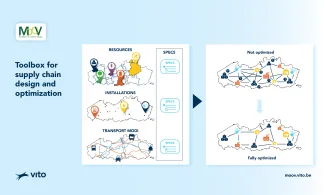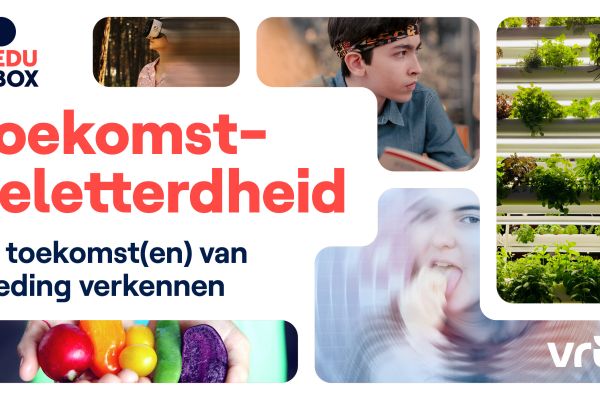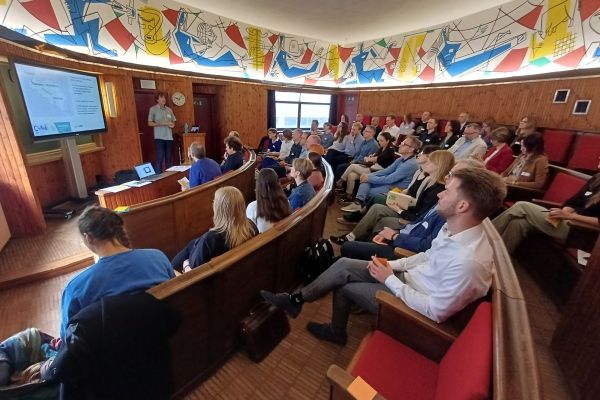A sustainability passport for business locations
Businesses are making more and more of an effort to make themselves sustainable, and ideally they will also take account of their offices and the areas around them in doing so. VITO has set up a new service offering to support them in this. By using a diverse range of data sources, the potential of a business location can be identified in broad and accurate terms, tailored to the company itself.

The impact of a location can hardly be underestimated for the operation and success of a modern company. Is the energy supply assured, ideally with as much green and affordable energy as possible? Are there any possibilities for handling natural resources in the company’s surroundings more sustainably (such as rainwater instead of groundwater)? Are the business locations consistent with the other activities and locations in the supply chain? And, finally, is it easily accessible for staff?
Tackling a company’s sustainability challenges
In the quest for sustainability options, companies need to take account of the strengths and weaknesses that characterise their premises today, as well as with future challenges in a wide variety of fields, from climate and environment to logistics and mobility. As VITO is already active in all those fields, the idea of setting up a new service provision for companies to explore the options that their location has to offer in terms of sustainability was born, at first in Flanders but perhaps also beyond. ‘At our Spatial Environmental Aspects department, we often carry out studies and assignments on spatial planning for government policy-makers,’ says Karolien Vermeiren from VITO. ‘However, we also notice that companies are attaching more and more importance to the spatial context. They usually have many and varied transition paths towards becoming more sustainable on their wish list, and realise that their location plays an important role in that as to whether or not to support these. They’re looking for guidance in assessing the options and/or limitations.’
A more sustainable supply chain for your business
VITO has developed MooV, a service that helps companies optimise their supply chain. ‘Naturally, logistics is a crucial element in a company’s sustainability challenge,’ says Annelies De Meyer from VITO. ‘If a company wants to change something in its supply chain, such as moving to a new location or a transition to multi-modal transport, this has consequences in the short and long time, in economic, ecological and social terms. With MooV, we can imitate the current supply chain and then determine the impact of such decisions. With our experience with MooV, we felt that we could contribute to the new service provision to identify the potential of a business location in the whole chain.’
Central to the new service provision is the development of a ‘passport for sustainable business locations’. This may arise from the question from a particular company, starting from a specific location and based on the data available on it (on spatial planning, water, energy, mobility). Vermeiren: ‘We then put together a kind of menu along with data and indicators that could be important to a company.’ But it can also work the other way round, when looking for a new location (perhaps for an expansion of activities) that needs to meet particular criteria and where the criteria depend on the company’s specific activities, as well as on any existing offices. ‘With our optimisation tools, we then search for a location that meets most of the criteria.’

Sustainable business parks can make smart use of environmental characteristics
Vermeiren proposed the idea at the most recent edition of VITO’s Clean Vision Summit, which took place in June 2022 in Ghent. She noticed some interest from the companies present there. ‘Companies that are concerned about sustainability really are getting on with this. You can tell that from the popularity of concepts like an energy hub too. Certainly in a time when energy prices are going through the roof and the future is anything but predictable in these terms, companies want to know which environmental characteristics they can make the best use of, such as capacity for installing wind turbines or exchanging energy with companies in the neighbourhood.’
Companies interested in the sustainability passport can turn to VITO. Depending on their question (and how practical and specific it is), experts from the various VITO units and departments will get to work. ‘The strength of our joint service is the combination of the business locations’ potential in a spatial sense with the premises’ potential in the company’s wider supply chain, both now and in the future. This allows companies to gain value insights, so they can make strategic, sustainable decisions,’ says De Meyer.
With the new service provision, VITO is also helping to bring the (Flemish) policy, and its consequences in practice, to those companies. ‘It gives companies a menu of objective data on what exactly a sustainable location will mean for them. A menu that, moreover, has been tailored to them,’ says Vermeiren.
Certainly in Flanders, where space is scarce and finding an optimum business location is a major challenge anyway, this strongly data-driven service provision has a future. This is also because the situation is constantly changing, for example in terms of resources (water, for example), logistics or policy. De Meyer: ‘Furthermore, it should be anticipated that the government will shortly be imposing certain basic requirements on business locations in terms of sustainability too. ‘As a company, then, you naturally want to know what score your own location would get.’









